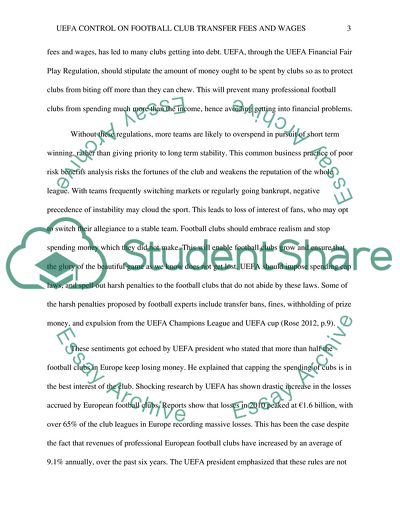Cite this document
(The Union of European Football Association Control on Football Club Term Paper, n.d.)
The Union of European Football Association Control on Football Club Term Paper. https://studentshare.org/sports-and-recreation/1775967-should-the-uefa-limit-the-amount-a-football-club-can-spend-on-transfers-and-wages-despite-the-limitations-this-would-put-on-the-the-potential-of-a-club-to-grow
The Union of European Football Association Control on Football Club Term Paper. https://studentshare.org/sports-and-recreation/1775967-should-the-uefa-limit-the-amount-a-football-club-can-spend-on-transfers-and-wages-despite-the-limitations-this-would-put-on-the-the-potential-of-a-club-to-grow
(The Union of European Football Association Control on Football Club Term Paper)
The Union of European Football Association Control on Football Club Term Paper. https://studentshare.org/sports-and-recreation/1775967-should-the-uefa-limit-the-amount-a-football-club-can-spend-on-transfers-and-wages-despite-the-limitations-this-would-put-on-the-the-potential-of-a-club-to-grow.
The Union of European Football Association Control on Football Club Term Paper. https://studentshare.org/sports-and-recreation/1775967-should-the-uefa-limit-the-amount-a-football-club-can-spend-on-transfers-and-wages-despite-the-limitations-this-would-put-on-the-the-potential-of-a-club-to-grow.
“The Union of European Football Association Control on Football Club Term Paper”. https://studentshare.org/sports-and-recreation/1775967-should-the-uefa-limit-the-amount-a-football-club-can-spend-on-transfers-and-wages-despite-the-limitations-this-would-put-on-the-the-potential-of-a-club-to-grow.


